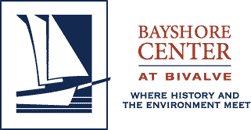Come learn about history and environmental science aboard the AJ Meerwald, New Jersey’s official tall ship! Bring your family and friends out for an educational day on the water!
What is an Education Sail?
Our 2-hour Education Sails on the AJ Meerwald provide you the opportunity to learn about the history and ecology of the Bayshore while sailing on New Jersey’s official tall ship! In addition to our normal history presentation, we will be presenting a series of workshops focusing on marine science. All activities are hands-on and interactive.
Dates and Times
Public Education Sails vary by port. please check our schedule here for our full availability.
Find our Port Schedule Here
Tickets are $50 per person! Find tickets here.
